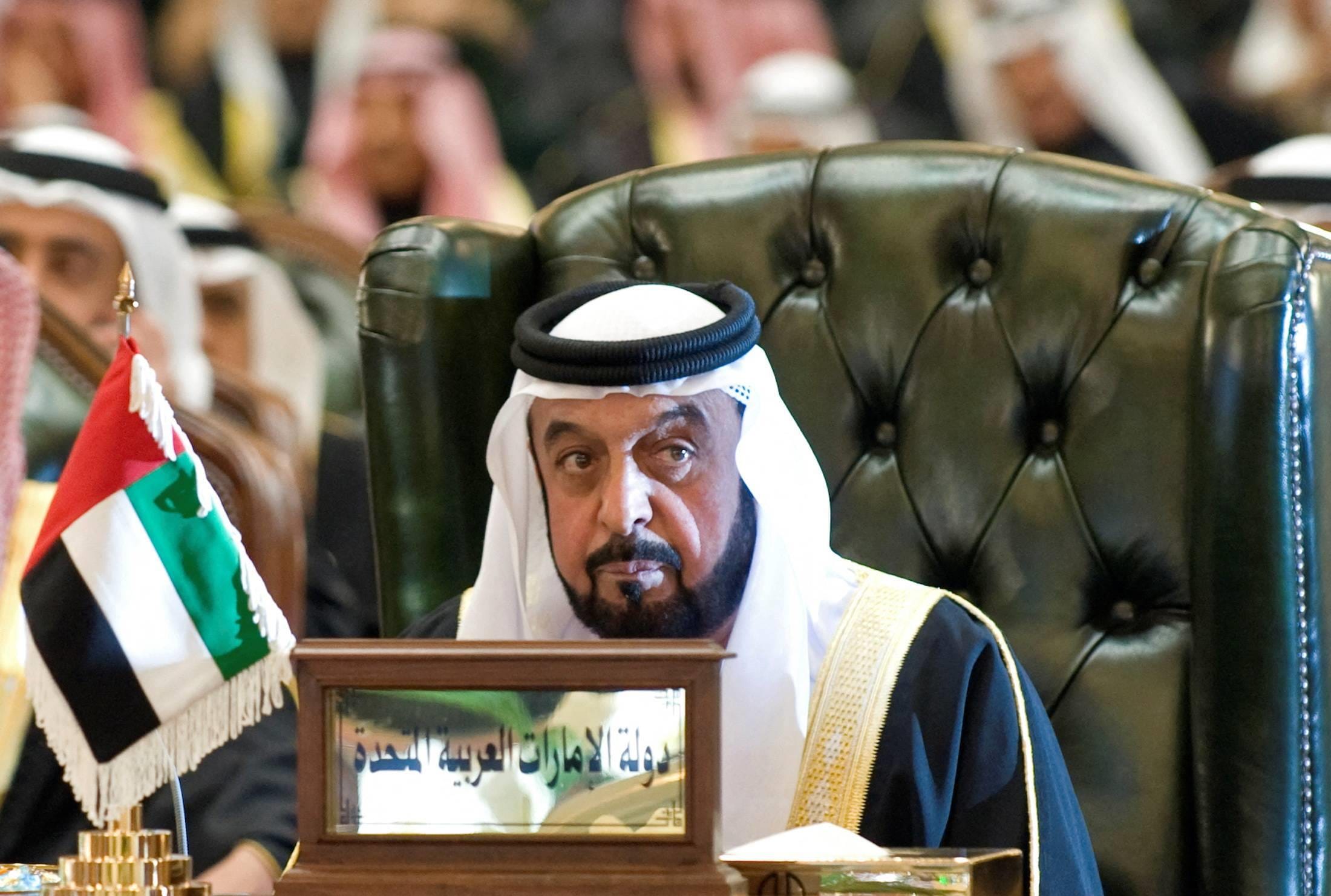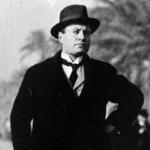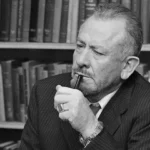Step into a world of intrigue and power. The leaders of the Arab world stand at the helm, their decisions shaping the destinies of millions. From humble beginnings to grand palaces, their lives are a tapestry woven with ambition, vision, and influence. Let us unveil the untold stories and explore the complexities that define these enigmatic figures, whose actions have shaped the course of history and continue to shape our present.
Facts About Arab Leaders
Arab leaders are like captains steering their countries’ ships. They make major decisions, impacting everything from peace treaties and conflicts to the daily lives of their citizens. Their choices have repercussions not only within their borders but also across the Middle East and the wider world.
While often depicted as powerful figures, Arab leaders represent a diverse group with leadership styles shaped by their countries’ unique histories and cultures.
Some, like Sultan Qaboos, who ruled Oman for nearly 50 years, are remembered for propelling their nations towards modernity and forging international alliances. King Abdullah II of Jordan exemplifies this through his diplomacy and efforts to establish a stable, modern Jordan.
Peace and conflict are integral to the Middle East’s narrative. Some leaders have championed diplomacy, while others have led their nations into conflicts with devastating consequences. Anwar Sadat, the former president of Egypt, made history with his 1977 visit to Israel, paving the way for the Egypt-Israel Peace Treaty, a pivotal moment in the region. Contrastingly, Saddam Hussein, who ruled Iraq with an iron fist, initiated wars against Iran and Kuwait, inflicting immense suffering on his people and destabilizing the region.
Economically, Arab leaders grapple with managing their countries’ finances, often heavily reliant on oil. Some have utilized this wealth for modernization, investing in education and infrastructure. Sheikh Mohammed bin Rashid Al Maktoum, the ruler of Dubai, exemplifies this, transforming Dubai into a global economic hub. In Saudi Arabia, King Salman and his ambitious son, Mohammed bin Salman, are endeavoring to reduce the country’s dependence on oil through Vision 2030, a plan aimed at economic diversification and global engagement.
Leadership extends beyond economics and politics to encompass social progress and human rights. Mohammed bin Salman has pushed for reforms in Saudi Arabia, including granting women the right to drive. However, he has also faced criticism for suppressing dissent and Saudi Arabia’s involvement in the Yemen conflict. Bashar al-Assad of Syria has been accused of grave human rights abuses during Syria’s devastating civil war.
On the world stage, some Arab leaders have shaped international relations. Gamal Abdel Nasser, Egypt’s charismatic leader during the 1950s and 60s, was a powerful advocate for Arab nationalism and a key figure in the Non-Aligned Movement during the Cold War. Arab leaders have often held considerable influence when it comes to oil, a vital resource for the global economy. King Faisal of Saudi Arabia demonstrated this influence during the 1973 oil embargo, an event that sent shockwaves through the world.
In conclusion, Arab leaders represent a diverse group confronting complex challenges. Their choices have profound implications not only for their countries but for the Middle East and the world. From pursuing peace and economic development to tackling social issues and navigating international relations, their leadership continues to shape history’s course.
What Are 5 Facts About Arabs?
Let’s delve into the captivating world of Arabs, a rich tapestry woven from language, culture, and history.
- A Language That Echoes Across Borders: Imagine traveling through 22 countries and encountering variations of the same language. That’s the beauty of Arabic. While a shared grammatical structure unites them, each country boasts its own distinct dialect, adding a local flavor. It’s akin to visiting different regions within the United States, each with its unique accent and slang.
- More Than Just a Label: “Arab” isn’t solely about ethnicity or origin; it embodies a shared culture, history, and identity. Within this diverse community, you’ll find Arabic speakers alongside those who communicate in Somali, French, Comorian, and various other languages, creating a rich tapestry of linguistic diversity.
- The Brains Behind the Numbers: Remember grappling with algebra in school? Thank the brilliant Arab mathematician Al-Khwarizmi, who introduced this fundamental concept to the world. His work, along with contributions from countless other Arab scholars, laid the groundwork for many mathematical principles we use today.
- Melodies That Transcend Cultures: The strum of a guitar or the haunting melody of an oud echo the enduring influence of Arabic music. These instruments, among others, journeyed from the Arab world to Western Europe, forever shaping the sounds and instrumentation of Western music.
- Ancient Seats of Learning: Imagine a university over 1,100 years old, still bustling with students today. The University of Al-Qarawiyyin in Morocco exemplifies the Arab world’s long and esteemed academic tradition. Established in 859 CE, it stands as a beacon of knowledge, demonstrating that the pursuit of education has always been deeply rooted in Arab culture.
Who Are the Arab Leaders?
The Arab world encompasses a diverse group of leaders, each governing their own country within the vast region of the Middle East and North Africa. It’s like a giant puzzle where each Arab country is a piece, and the leader is the image on that piece, contributing to the region’s intricate tapestry.
Arab leaders don’t fit a single mold. Some countries, like Algeria and Egypt, have Presidents, often elected officials, who serve as the nation’s chief executive. Others, like Jordan and Morocco, are led by Prime Ministers, who collaborate with parliament to govern.
And then there are the Kings. Yes, some Arab countries maintain monarchies, with rulers like King Salman of Saudi Arabia and King Mohammed VI of Morocco holding the reins. These monarchs wield significant power and influence, shaping the destinies of their kingdoms.
This diverse blend of leadership styles makes the Arab world particularly fascinating. Some leaders prioritize modernization, propelling their countries toward progress and innovation. Others focus on preserving their cultural heritage and religious values.
However, the path of leadership is not without its challenges. Some leaders have led their countries into conflict, while others grapple with economic struggles and social issues. Leading a nation, especially in a region as complex and dynamic as the Arab world, is a demanding task.
Ultimately, these leaders are not merely names on a page; they shape the future of the Arab world. Their decisions on the global stage impact not only their own people but also the entire region and beyond. While we may not always agree with their choices, understanding their perspectives is crucial as their actions have far-reaching consequences.
What is the Title of the Arab Leader?
Attributing the correct title to an Arab leader isn’t as straightforward as it might seem. The Arab world, rich in history and culture, employs titles that reflect its unique traditions and governing structures.
Let’s explore some of these titles:
- King: This title signifies a hereditary ruler with substantial authority, much like in other parts of the world. King Salman of Saudi Arabia is an example. The title instantly conveys a sense of tradition and power passed down through generations.
- Sheikh: This title carries a more nuanced meaning. While often linked to leadership, especially within Bedouin communities, “Sheikh” can also denote a respected elder, a scholar of Islam, or even a spiritual guide. A “Sheikh” is usually held in high regard for their wisdom and influence, even if they don’t govern a nation.
- Emir: This title suggests leadership and command. Historically, “Emir” often referred to a military commander or provincial governor. Today, it frequently applies to rulers of smaller nations or those with significant authority within a larger Arab country, such as the Emir of Qatar.
- President: With modernization, many Arab nations adopted a more republican system, with “President” becoming the title for their elected heads of state. Presidents lead countries like Egypt and Tunisia.
These titles are not always mutually exclusive. For instance, a country might have a King as its ultimate ruler, but Emirs govern different provinces within that kingdom.
Key takeaway? Titles in the Arab world are intertwined with history, religion, and political systems. A single word like “Sheikh” can hold various interpretations. When you encounter an Arab leader’s title, remember that it likely reveals a deeper story about their role and significance within their society.
What Are Arab People Known For?
Arab culture has left an undeniable mark on the world. Beyond their distinct identity expressed through language, music, art, and customs, Arabs possess a legacy of groundbreaking achievements. From mathematics, where their contributions were instrumental, to philosophy, where their insights resonate to this day, their impact is undeniable. Their mastery of navigation opened new frontiers, connecting distant corners of the globe.
The rise and spread of Islam is another chapter where Arabs played a pivotal role. Embraced by many, this faith became a unifying force among Arab nations, shaping their shared identity and influencing their interactions with the world. Over time, Arab communities have flourished far beyond their traditional homeland. This diaspora, a testament to their adaptability and spirit, has enriched the globe, fostering cultural exchange, and adding vibrant threads to the global tapestry.
In the modern era, Arab leaders remain influential figures on the world stage. Their voices are heard in global economics and international politics. They actively engage in cultural dialogues, bridging divides and fostering understanding between different societies.
While resources like the Encyclopedia Britannica provide valuable insights, our understanding of culture and history is constantly evolving. Ongoing research and discoveries often challenge existing knowledge, encouraging us to embrace a more nuanced perspective. Consider this a starting point for delving deeper into the multifaceted world of the Arab people.
What Are 5 Facts About Muslims?
Let’s explore what it means to be Muslim and delve into some aspects of their faith and way of life.
- Peace and Harmony: Islam emphasizes peace, harmony, and living together respectfully. It’s about understanding your duty to God and showing kindness and compassion to others. This principle guides how Muslims interact with the world.
- One God, Allah: At Islam’s heart lies the belief in one God, known as Allah. Muslims believe Allah created and sustains everything. They hold the Prophet Muhammad in high regard, viewing him as the final messenger of Allah. His teachings, compiled in the Quran, guide Muslims on living according to Allah’s will.
- A Simple Declaration: Becoming Muslim is straightforward. It involves sincerely declaring your belief in Allah as the one true God and accepting Muhammad as his prophet. This statement of faith forms the foundation of a Muslim’s relationship with God.
- Strengthening the Connection: Muslims strive to build a strong bond with Allah through regular worship, such as praying five times a day and performing good deeds. It’s about nurturing a relationship with God through dedicated effort. These acts of worship aren’t mere rituals; they’re seen as ways to draw closer to God and seek His pleasure.
- An Accessible Path: The beauty of Islam lies in its accessibility and personal nature. It offers people from all walks of life a path to spiritual fulfillment and the potential to attain God’s favor. It is a journey of faith, reflection, and striving to live a life pleasing to God and beneficial to humanity.
What Are Arab Rules?
When we discuss “Arab rules,” we’re essentially referring to a collection of ideas, customs, and traditions shaped by religion, history, and daily life.
For many in Arab cultures, Islam provides a set of guidelines for living. The Quran, their holy book, lays out these guidelines, which some might compare to the Ten Commandments. They encompass principles like being kind, honest, and respectful. The Quran stresses the existence of only one God, Allah, and forbids idol worship.
Beyond the Quran, the Hadith, a collection of stories about the Prophet Muhammad’s life and teachings, guides Muslims on how to apply the Quran’s teachings in their everyday lives.
Then there are the “Five Pillars of Islam,” five core practices that Muslims focus on: prayer, giving to charity, fasting during Ramadan, making a pilgrimage to Mecca if possible, and believing in one God.
The concepts of “Halal” and “Haram” are also central. Halal signifies permissible or allowed, while Haram means forbidden. These terms influence various aspects of life, from food and clothing to behavior and interactions.
It’s crucial to remember that Arab culture, like any other, encompasses diverse interpretations and ways of life. How someone in Morocco interprets “Arab rules” might differ from someone in Saudi Arabia, even if they follow the same basic principles. Culture is complex and constantly evolving.
This is just a glimpse into Arab culture and customs. There’s a wealth of resources available to explore this topic further.
What is a Fact About Arabic?
Arabic is more than just a language; it’s a prominent figure in the linguistic world, holding official status in numerous international organizations. Millions around the globe use it daily.
One remarkable aspect of Arabic is its enduring nature. It has remained relatively unchanged since pre-classical times, preserving an incredible linguistic legacy.
During the Middle Ages, Arabic was the language of science and culture, giving birth to groundbreaking discoveries and artistic masterpieces.
What’s even more fascinating is that Arabic has subtly influenced other languages for centuries. Many European languages have borrowed words from Arabic, demonstrating its significant impact on cultures far and wide.
So, how many people speak Arabic? The numbers are impressive: over 380 million native speakers and another 330 million who use it as a second language.
Arabic’s significance transcends mere communication; it’s a cultural force with a rich history and a global impact.
What Are 5 Interesting Facts About Saudi Arabia?
Let’s uncover some lesser-known facts that make Saudi Arabia unique.
- More Than Just Deserts: When picturing Saudi Arabia, endless deserts might come to mind. While sand dunes do cover a significant portion, the Saudi landscape offers more. Saudi Arabia is home to striking mountain ranges like the Asir Mountains in the southwest, with their green peaks, cooler climate, and occasional snowfall. The Red Sea coastline boasts stunning coral reefs, a diver’s paradise.
- Guardians of Ancient History: Saudi Arabia holds clues to a past extending beyond Islamic history. Archeologists suggest human presence in the region for millennia. Ancient rock art and inscriptions, some dating back 10,000 years, are scattered across the country, especially in the Hail region. Mada’in Saleh, an ancient city carved into sandstone cliffs by the Nabataeans, the same civilization that built Petra in Jordan, stands as a testament to forgotten empires and ancient civilizations.
- Falconry: A Soaring Legacy: Falconry, the art of hunting with trained birds of prey, is deeply embedded in Saudi Arabia’s cultural heritage. Passed down through generations, it represents nobility, companionship, and a connection to nature. These magnificent birds, particularly falcons, are highly respected and cared for, almost like family members.
- A Culinary Journey: Saudi Arabia is renowned for its dates and strong Arabic coffee, but its cuisine is far more diverse. Influenced by its location at the crossroads of trade routes, Saudi cuisine blends spices and traditions from Asia, Africa, and the Middle East. From “Kabsa,” a slow-cooked lamb dish often considered the national dish, to the flavorful rice dish “Mandi” and the hearty stew “Saleeg,” Saudi Arabian food is a culinary adventure.
- A Land of Transformation: Saudi Arabia is at a pivotal juncture, embracing change rapidly. Vision 2030, spearheaded by Crown Prince Mohammed bin Salman, aims to diversify the economy beyond oil, create a more vibrant and open society, empower women, invest in technology and renewable energy, and promote tourism. While the full impact of these ambitious reforms remains to be seen, Saudi Arabia is undergoing a fascinating transformation.
What Are 5 Facts About the Middle East?
- A Bridge Between Continents: The Middle East stands at the crossroads of Asia, Africa, and Europe. This unique location has made it a focal point for trade, cultural exchange, and historical power struggles, solidifying its importance in global affairs.
- Where Faith Took Root: Judaism, Christianity, and Islam all trace their origins back to the Middle East. Jerusalem holds deep religious significance for all three, making it a holy city for millions globally. The Middle East is a place where faith has profound roots.
- The Oil King: The Middle East possesses vast oil reserves, making it a dominant force in the global energy market. Oil prices and production decisions made here impact the entire world.
- A Symphony of Languages: While Arabic is the most common language in the Middle East, it is just one part of a diverse linguistic landscape. Persian, Turkish, Kurdish, and others contribute to the region’s cultural richness, much like different instruments in an orchestra.
- A Cultural Kaleidoscope: The Middle East is a melting pot of cultures. Centuries of interaction between different civilizations, from ancient empires to modern exchanges, have created a unique blend of traditions, art forms, and ways of life. Exploring this region is a journey of constant discovery.
What Are Some Arabic Facts for Kids?
Here are some fun facts about the Arabic language:
- A Global Language: Arabic is spoken by over 250 million people worldwide! It’s one of the most popular languages, spoken on every continent.
- The Language of the Quran: The Quran, the holy book of Islam, is written in Arabic. It’s a beautiful language that’s very important to Muslims.
- Different Dialects: Arabic is spoken in many countries, and each one has its way of speaking, just like different accents!
- Arabic Words in English: Some English words you know, like “sugar,” “algebra,” and “alcohol,” come from Arabic!
- Ancient Wonders: The Arab world is home to incredible ancient places and treasures like the pyramids in Egypt!
- Writing from Right to Left: Arabic is written from right to left, and its alphabet has 28 letters that can change shape!
- Calligraphy is Art: Arabic calligraphy turns words into beautiful art! Artists use special pens and ink to create amazing designs.
These are just a few fun facts about the Arabic language and its rich culture. There’s so much more to explore and discover!
- Unveiling Bernhard Caesar Einstein’s Scientific Achievements: A Legacy in Engineering - July 15, 2025
- Uncover who is Jerry McSorley: CEO, Family Man, Business Success Story - July 15, 2025
- Discover Bernhard Caesar Einstein’s Scientific Contributions: Unveiling a Legacy Beyond Einstein - July 15, 2025















